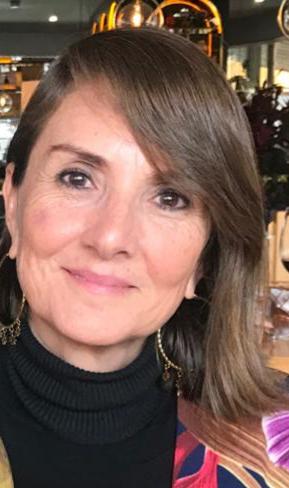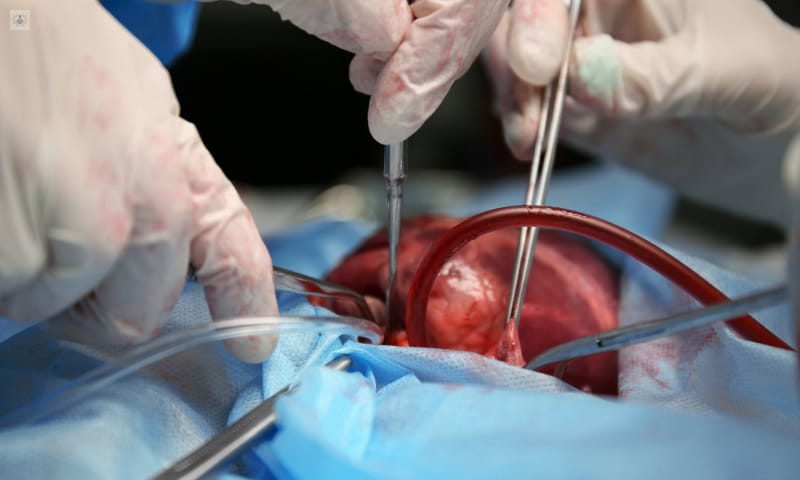Diario del Huila, Chronicle
By: Juan Manuel Macías Medina
Belén Perdomo has been living for 30 years thanks to two kidney transplants, the first one, when she was 20 years old, and the others, 15 years later after her body rejected the organ that her mother donated. She was a university student and led a normal life, however, kidney failure changed her plans.
“I got sick when I was very young, at age 20, I was diagnosed with chronic kidney failure. It is a disease that is congenital, it is treacherous because it can easily be confused with a flu, they give nausea, headache, fever, tension shoots up and other things, ”he said.
Being able to identify what was causing discomfort in his body was a challenge for the doctors, whom he visited for long periods of time to determine the cause of his pain. Of course, Belén never imagined that her kidneys were going to ‘take her hand out’.
“I spent about a year visiting doctors but they couldn’t find out what I had when they discovered me, because my kidneys were already atrophied. After that I had hemodialysis and peritoneal dialysis therapies, these therapies are very difficult because one lasts four hours attached to a machine, “he added.
Kidney transplantation was the best alternative that the doctors found for Belén to lead a life as normal as possible, her family did not abandon her, so they began procedures to carry out the procedure as quickly as possible.
“After more or less a year of dialysis, it was decided that I had to undergo a transplant, so they began to do tests on my brothers and my mother to determine who was more compatible. My mother turned out to be the most compatible of all, so in 1994 she underwent the procedure, my mother lives with only one kidney ”, he pointed out.
But not everything was pink, 15 years later, her body rejected the kidney that her mother had donated, which made her return to the tragedy of dialysis and hospitals, places that she had not visited constantly since she was 20 years old.
“15 years after having performed the transplant, I rejected the organ and it was lost, nothing could be done and I had to go back to dialysis, one takes immunosuppressive drugs precisely to lower the defenses and that this does not happen, but in this If this was the case, I had to go back to dialysis to wait for a new transplant, after three years of being on dialysis they were able to do it for me and I am now going to be 10 years old with this little kidney ”, he said.
Belén does not change for anyone, enjoys her new kidney, and appreciates the fact that a person who did not know her, has given her a new chance at life.

15 years after the first transplant, Belén’s body rejected her mother’s kidney.
–
“With the transplant, the change is impressive, the quality of life is improved in all aspects, the physique changes remarkably, those relapses generated by dialysis are avoided. All transplant recipients have to do is take immunosuppressive drugs for life, but it’s much better than being subjected to dialysis in a hospital three times a week. It is not allowed for us to know who was the person who made the organ donation, the only thing I know about that person is that he was young and that unfortunately he suffered a motorcycle accident.
“There is no culture of donating”
Marta Vega, head nurse specialized in nephrology and member of the Renal and Transplant Foundation, stated that the commemoration of the South Colombian Day of Organ and Tissue Donation is carried out in order to praise and recognize the work of the people who, in At some point in their life, they wanted to donate an organ.
“On April 14 of each year by Ordinance 010 of the Huila Assembly, the celebration of the South Colombian Day of the Donation of Organs and Tissues of the human body was decreed. Usually every April 14 we honor the donation, that altruistic act of the families who have donated in the department, without donors there are no transplants ”, said the nurse.
The health worker stressed that in the department of Huila there is no culture of donation, this, according to her, is due to the myths that have generated practices such as organ trafficking.

In Colombia, for every million inhabitants there are eight organ donors. (Reference image)
–
“The transplant service in the department began in Huila in 2004, currently the donation rates in Huila are very low, although it must be seen that it was not only in Huila but in the country and different parts of the world. This depends on the lack of information that people have, that is why the Foundation is working to end the mythology that revolves around the issue of transplants ”, he emphasized.
In Colombia for every million inhabitants, there are eight donors. Since the transplants began in the department of Huila, 36 has been the largest number of transplants performed during a year, in 2019, 29 transplants were performed, unfortunately in 2020 and 2021 due to the pandemic, neither has been performed a transplant procedure.
Vega reported that since 2017, people who do not wish to donate must notify it by means of a sworn document, because if they do not do so, the law will presume that they are a donor patient.

According to the Renal and Transplant Foundation, donation rates in Huila are very low. (Reference image)
–
“Law 1805 of 2016, states that everyone has the opportunity, in life, to choose whether or not they want to be a donor, if they choose to be a donor, they must make a registration in the National Institute of Health, if they do not want to donate , you must make an affidavit and upload the documents. People who do not notify in life that they do not want to be donors, the law says that they are legally presumed to be donors. From the Foundation, we want to make an invitation to people so that they are informed about the donation, know the law and have a will to donate ”, concluded the nurse member of the Renal and Transplant Foundation in the department of Huila.
–


